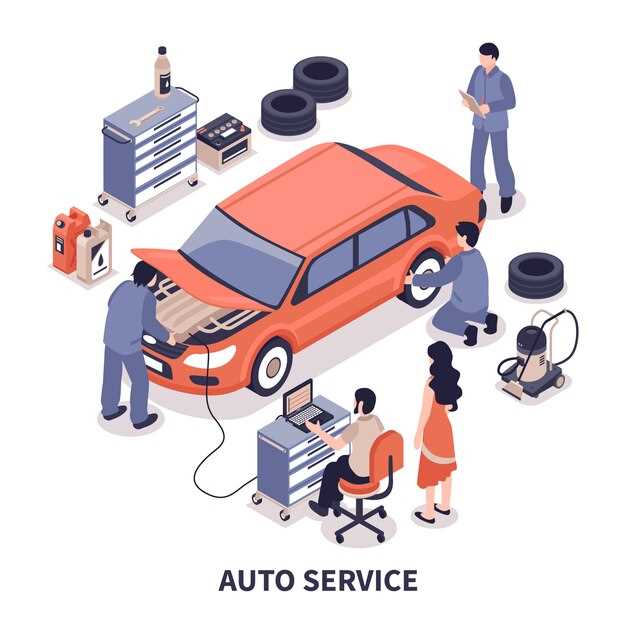
In the world of automotive performance, ECU tuning has emerged as a vital practice for car enthusiasts looking to enhance their vehicle’s capabilities. This process involves remapping the Engine Control Unit (ECU) to optimize the fuel-air mixture, ignition timing, and other parameters that directly influence the car’s performance. As a result, many drivers experience improved horsepower, torque, and fuel efficiency, making tuning an appealing option for those seeking more from their vehicles.
Understanding the benefits of ECU tuning is essential for anyone considering this modification. Not only does tuning allow for better performance on the road, but it can also lead to significant improvements in driving experience. Many tuners report enhanced throttle response and smoother acceleration after a successful remap, factors that can make a substantial difference in everyday driving scenarios.
In this guide, we will explore various techniques and expert tips for achieving optimal results from your ECU tuning. Whether you’re a seasoned car aficionado or a newcomer eager to delve into the world of performance enhancement, our insights will empower you to make informed decisions about your tuning journey. Prepare to unlock your car’s potential and enjoy the exhilarating benefits of effective ECU remapping.
Understanding Different ECU Tuning Methods for Optimal Performance

ECU tuning is essential for car enthusiasts seeking enhanced performance. By optimizing engine management systems, different tuning methods can significantly improve power output and responsiveness. Understanding these methods helps in making informed choices for optimal performance.
Here are the primary ECU tuning methods:
- ECU Remapping:
This involves modifying the existing software within the ECU to alter parameters such as fuel mixture, ignition timing, and boost control. A remap allows for significant performance gains while retaining the car’s original hardware. It is often customized to suit specific driving styles and conditions.
- Chip Tuning:
Chip tuning is a method where the original chip in the ECU is replaced with a new one containing modified software. This can provide performance enhancements similar to remapping, but it often requires physical access to the ECU. Chip tuning can be advantageous for cars with limited remapping capabilities.
- Plug-and-Play Tuning Modules:
These are aftermarket devices that can be easily installed and connected to the car’s ECU. They offer preset tuning parameters and can quickly boost performance without extensive modifications. While convenient, they may not provide the same level of customization as remapping.
- Datalogging and Live Tuning:
Datalogging involves monitoring vehicle performance while driving. This data is used to make real-time adjustments to the ECU settings, allowing for fine-tuning based on actual driving conditions. Live tuning is beneficial for those who want to optimize performance dynamically.
When considering ECU tuning, it’s crucial to choose the method that aligns with your car’s needs and your performance goals. Always consult with a professional tuner to ensure the best results and avoid potential engine damage.
Key Benefits of ECU Remapping for Enhanced Power and Efficiency
ECU remapping is a powerful tuning technique that allows car enthusiasts to unlock the full potential of their vehicles. By modifying the engine control unit (ECU), significant improvements in power output and fuel efficiency can be achieved. This method involves adjusting parameters such as fuel injection timing, boost pressure, and ignition timing, leading to optimal engine performance.
One of the primary benefits of ECU remapping is the noticeable increase in horsepower and torque. By optimizing these parameters, the engine can generate more power without the need for expensive mechanical modifications. This is particularly beneficial for drivers seeking enhanced driving experience without compromising reliability.
In addition to performance gains, ECU remapping can lead to better fuel economy. By fine-tuning the air-fuel ratio and optimizing the engine’s operational characteristics, drivers can experience improved miles per gallon (MPG). This efficient use of fuel not only saves money at the pump but also reduces the vehicle’s carbon footprint.
ECU remapping also allows for tailored tuning specific to driving styles and preferences. Whether a driver prefers aggressive acceleration or a smoother, more economical ride, the ECU can be programmed to suit individual needs. This customization enhances the overall driving experience, making the car feel more responsive and enjoyable to drive.
Moreover, modern vehicles equipped with turbocharged engines benefit significantly from ECU remapping. By adjusting the boost levels and optimizing the throttle response, the powerband can be expanded, providing better acceleration and performance across various driving conditions. This leads to a more dynamic driving experience, especially in competitive scenarios.
Lastly, ECU remapping can improve the engine’s longevity and reliability. By ensuring that the engine operates within optimal parameters, the risk of issues such as overheating or excessive wear can be minimized. This controlled environment contributes to the lifespan of critical engine components, ultimately leading to lower maintenance costs over time.
Common Mistakes to Avoid During ECU Tuning Process

ECU tuning is an intricate process that can significantly enhance your car’s performance if done correctly. However, several common mistakes can hinder results or even damage the vehicle. Awareness of these pitfalls is crucial for successful remapping and tuning.
One major mistake is overlooking the importance of a backup. Before making any changes to the ECU settings, always create a backup of the original map. This ensures that you can revert to the stock settings if the tuning does not yield the desired effects or causes issues.
Another frequent error is neglecting to conduct proper research before commencing the tuning process. Understanding the specific needs of your car, along with its engine specifications, will help in creating a custom remap that is both safe and effective. Failing to assess these factors can lead to inappropriate adjustments that may damage the engine.
It is also essential to avoid tuning without adequate monitoring. Utilize diagnostic tools to track engine parameters like air-fuel ratio, boost levels, and temperature. Ignoring real-time data can lead to suboptimal settings and potential mechanical failures.
A common mistake is rushing the tuning process. Taking your time to fine-tune the remap is vital. Quick adjustments may seem appealing but often result in imprecise tuning that does not optimize performance. Patience is key to achieving the best results.
Failing to account for supporting modifications is another area to watch out for. Tuning should be complemented by other performance upgrades, such as exhaust systems or intake modifications. Without these, you may not realize the full potential of your tuning efforts.
Lastly, consider the difference between generic and custom mappings. Using a generic remap can be tempting due to its convenience, but it often lacks the precision needed for your specific vehicle’s performance. Investing in a customized tuning solution tailored to your car will yield far better outcomes.




